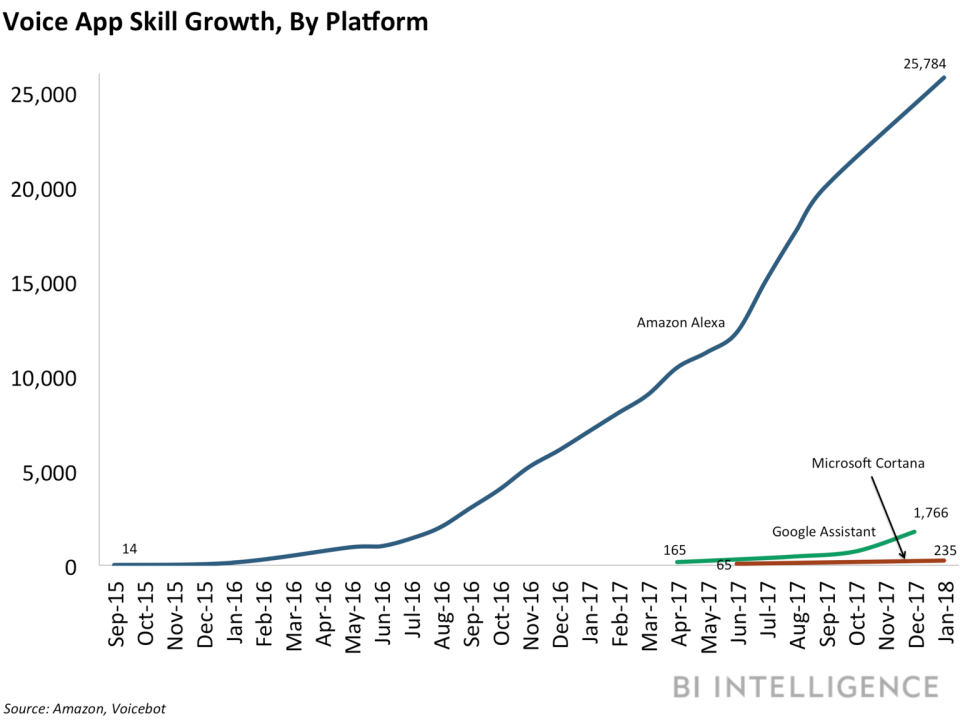IBM launches voice assistant for businesses (IBM)

BI Intelligence
This story was delivered to BI Intelligence Apps and Platforms Briefing subscribers hours before appearing on Business Insider. To be the first to know, please click here.
IBM launched Watson Assistant, an artificial intelligence (AI)-powered voice assistant for businesses seeking to infuse voice technology into their products, at its annual Think conference on Tuesday.
IBM will license Watson Assistant to enterprises so they can build personalized, interactive experiences into their own products and services that appeal to their customers.
IBM's announcement follows Amazon's November 2017 launch of Alexa for Business platform, which enables businesses to create their own Alexa skills for both practical and business use cases.
Watson Assistant has a heightened focus on customization and privacy over voice competitors like Google and Amazon, which could make it more likely to win over businesses than Alexa or Google Assistant.
It allows for personalization to help businesses better tailor their voice interactions. Developers can create custom voice activation commands and triggers for Watson Assistant, eliminating the need for a standard universal wake word, such as “Alexa” or “OK Google.” Additionally, businesses can train their assistants using their own datasets, making it easier to build actions and commands.
It gives users control over their personal data. Each integration of Watson Assistant exclusively holds the data it gathers, which ensures that companies, including IBM, aren’t pooling information on users' activities across various applications. Additionally, consumers have control over which Watson-powered applications and devices can access each other’s data through the IBM cloud, which enables the tech to learn from their actions and remember their preferences.
Integrating voice assistants with the enterprise market can help to unleash new use cases for voice technology. IBM hopes to infuse Watson Assistant with hotels, hospitals, banks, office gadgets, restaurants, connected cars, and more. Already, IBM has partnered with a few businesses for Watson Assistant — Harmon is using Watson Assistant in a Maserati concept car, Munich airport is leveraging Watson Assistant to power a robot to offer visitors directions, and Chameleon Technologies is using Watson Assistant to set temperatures in the house based around consumers daily schedule.
See Also:

 Yahoo Finance
Yahoo Finance 
